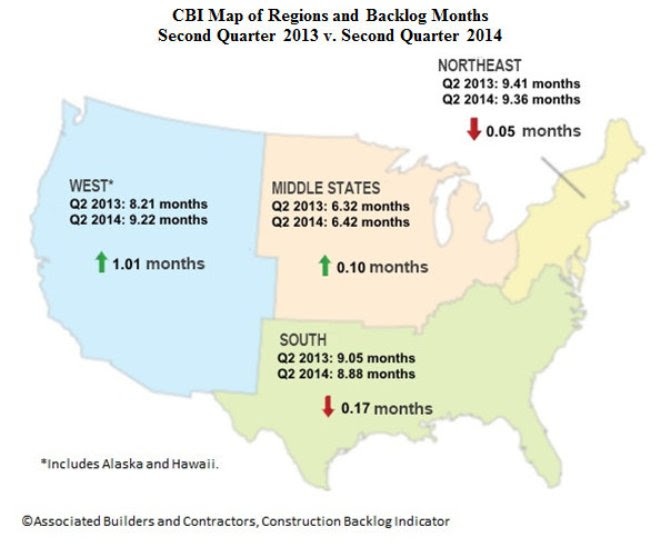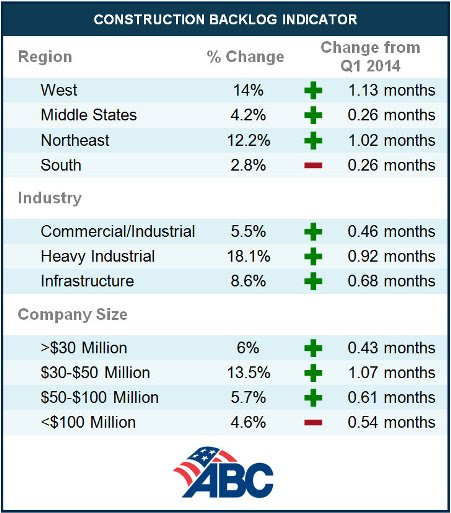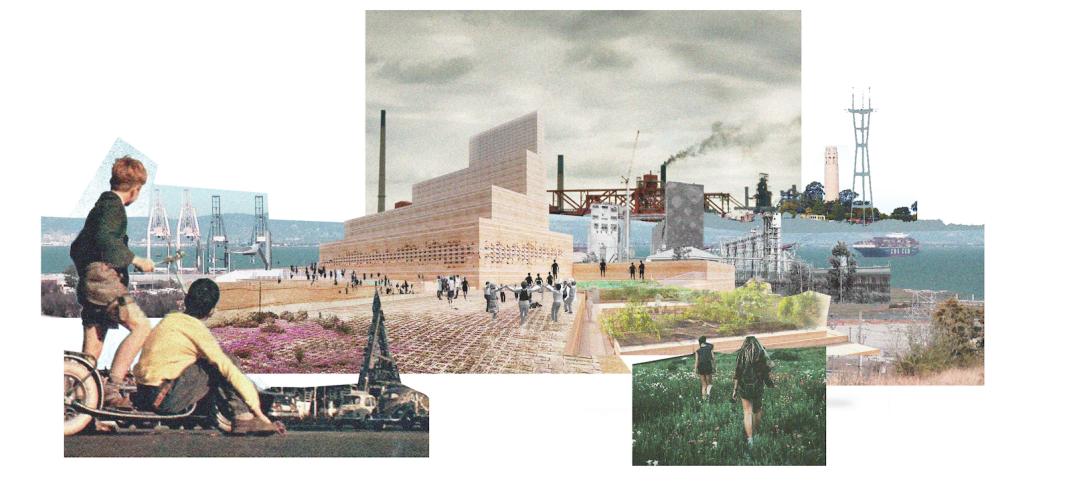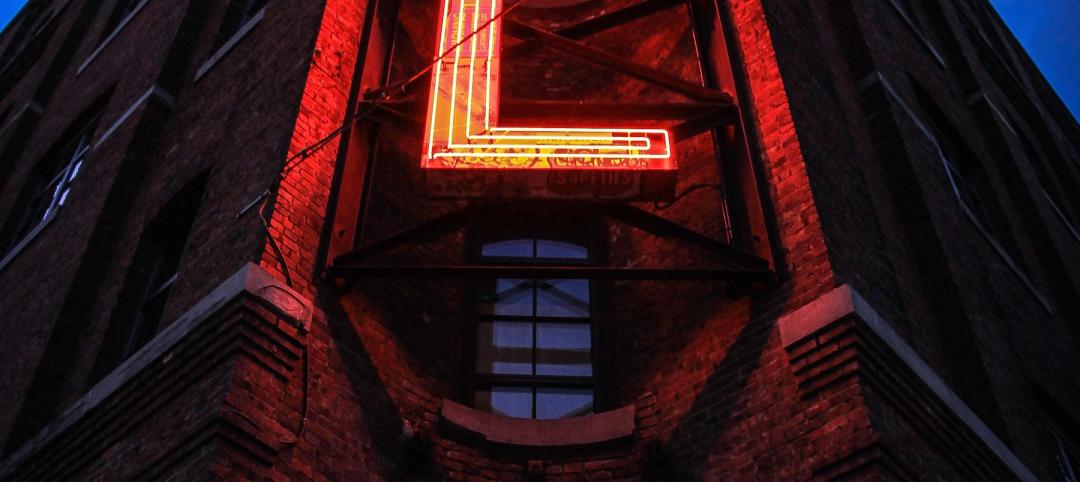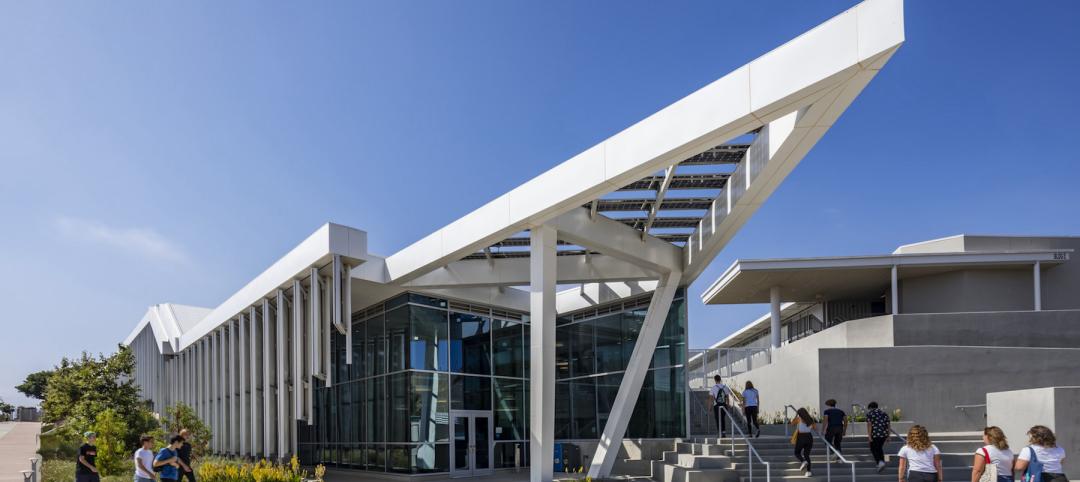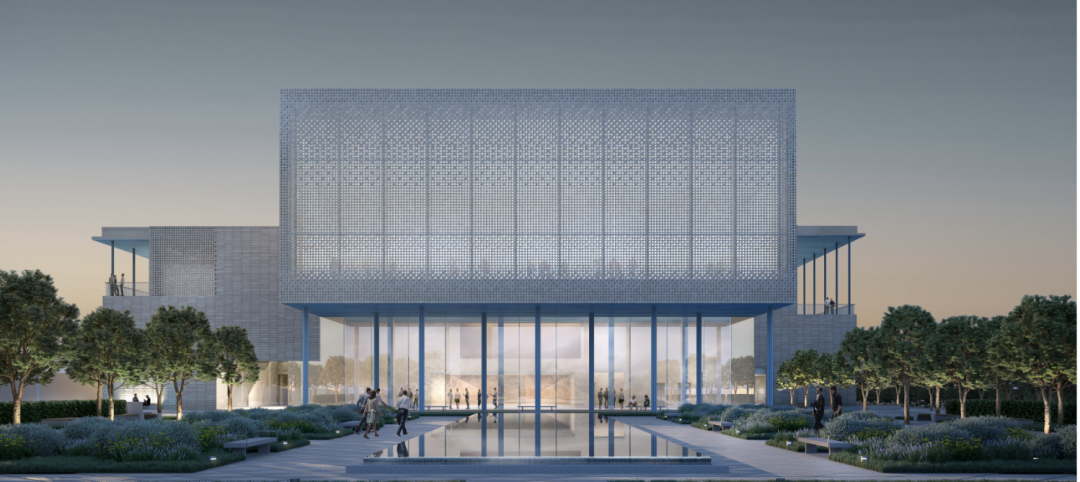Regional Highlights
- Backlog in the South has fallen just below 9 months, down from 9.14 months in the first quarter and from 9.05 months a year ago.
- The Northeast's backlog now stands at 9.36 months, which is still slightly below where it was this time last year (9.41 months), but an improvement from 8.34 months in the first quarter.
- Backlog in the Middle States is now at 6.42 months compared to 6.32 months a year ago and 6.16 months in the first quarter of 2014.
- The West's backlog stands at 9.22 months, up significantly from 8.21 months on a year-over-year basis and 8.09 months from last quarter.
Industry Highlights
- The commercial and institutional segment is just shy of its longest backlog recorded in CBI history at 8.90 months, up from 8.66 months one year ago and 8.44 months in the first quarter.
- Backlog in the heavy industrial segment gained nearly a full month from the first quarter and now stands at 6 months, up from 5.08 months in the first quarter and 5.8 months from the second quarter of 2013.
- Backlog in the infrastructure segment improved to 8.61 months from 7.93 months in the first quarter but is down from 8.96 on a year-over-year basis.
Highlights by Company Size
- The smallest firms, those with revenue less than $30 million, saw their backlog increase to 7.59 months, up from 7.16 months in the first quarter and 6.96 from the second quarter of 2013.
- Backlog from firms with $30-$50 million in revenue increased to 8.97 months, a significant increase from 7.58 months year over year and from 7.9 months from last quarter.
- Firms with revenue between $50-$100 million now have the longest backlog at 11.3 months, up from 10.69 months in the first quarter but down from 11.57 months a year ago.
- The largest firms, those with revenue over $100 million, saw their backlog decrease to 11.16 months from 11.7 months last quarter and 12.25 months a year ago.
Related Stories
Urban Planning | Jul 28, 2022
A former military base becomes a substation with public amenities
On the site of a former military base in the Hunters Point neighborhood of San Francisco, a new three-story substation will house critical electrical infrastructure to replace an existing substation across the street.
Hotel Facilities | Jul 28, 2022
As travel returns, U.S. hotel construction pipeline growth follows
According to the recently released United States Construction Pipeline Trend Report from Lodging Econometrics (LE), the total U.S. construction pipeline stands at 5,220 projects/621,268 rooms at the close of 2022’s second quarter, up 9% Year-Over-Year (YOY) by projects and 4% YOY by rooms.
Codes and Standards | Jul 27, 2022
Biden administration proposes drastic flood insurance reform
The Biden administration’s proposed major overhaul to the National Flood Insurance Program, or NFIP, would drastically alter how Americans protect homes and businesses against flooding.
Concrete | Jul 26, 2022
Consortium to set standards and create markets for low-carbon concrete
A consortium of construction firms, property developers, and building engineers have pledged to drive down the carbon emissions of concrete.
Green | Jul 26, 2022
Climate tech startup BlocPower looks to electrify, decarbonize the nation's buildings
The New York-based climate technology company electrifies and decarbonizes buildings—more than 1,200 of them so far.
Education Facilities | Jul 26, 2022
Malibu High School gets a new building that balances environment with education
In Malibu, Calif., a city known for beaches, surf, and sun, HMC Architects wanted to give Malibu High School a new building that harmonizes environment and education.
| Jul 26, 2022
Better design with a “brain break”
During the design process, there aren’t necessarily opportunities to implement “brain breaks,” brief moments to take a purposeful pause from the task at hand and refocus before returning to work.
Building Team | Jul 25, 2022
First Ismaili Center in the U.S. combines Islamic design with Texas influences
Construction has begun on the first Ismaili Center in the U.S. in Houston.
Codes and Standards | Jul 22, 2022
Office developers aim for zero carbon without offsets
As companies reassess their office needs in the wake of the pandemic, a new arms race to deliver net zero carbon space without the need for offsets is taking place in London, according to a recent Bloomberg report.
Codes and Standards | Jul 22, 2022
Hurricane-resistant construction may be greatly undervalued
New research led by an MIT graduate student at the school’s Concrete Sustainability Hub suggests that the value of buildings constructed to resist wind damage in hurricanes may be significantly underestimated.



